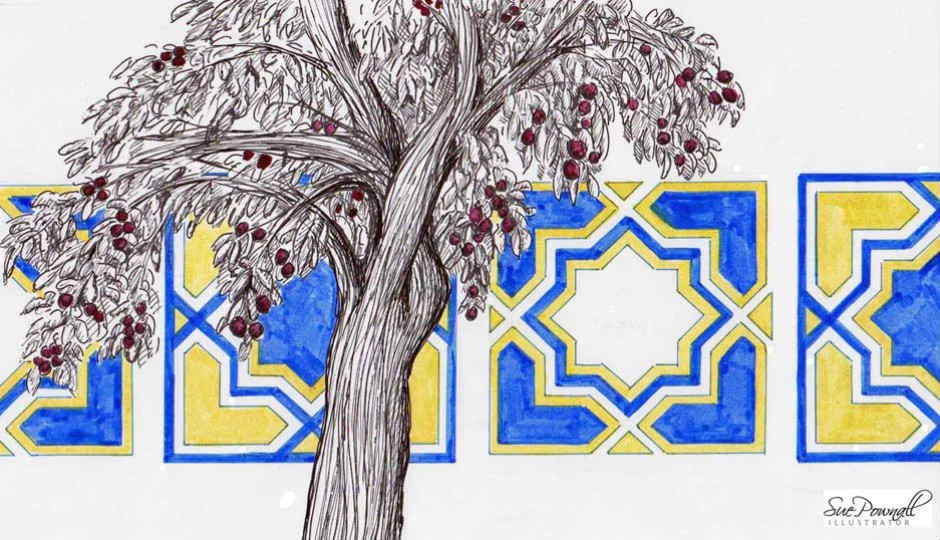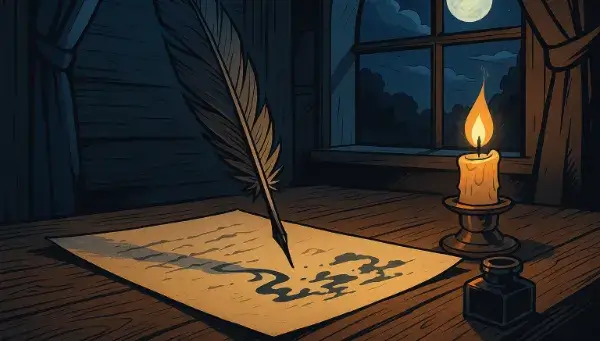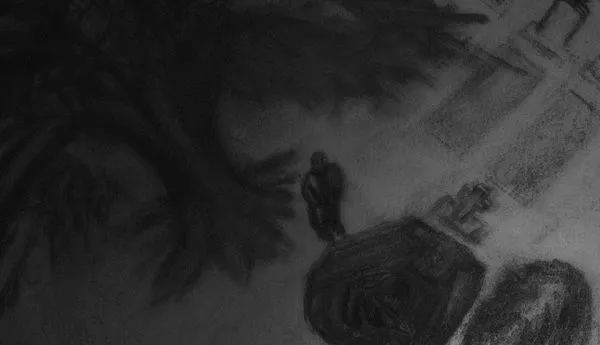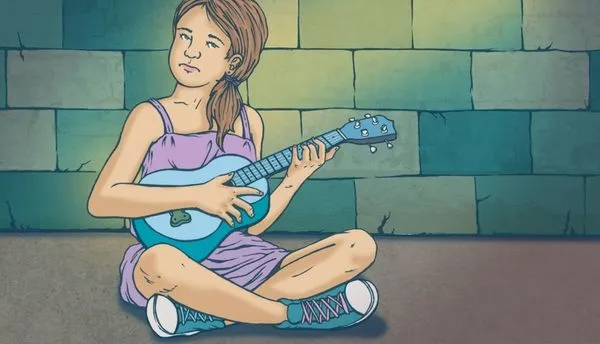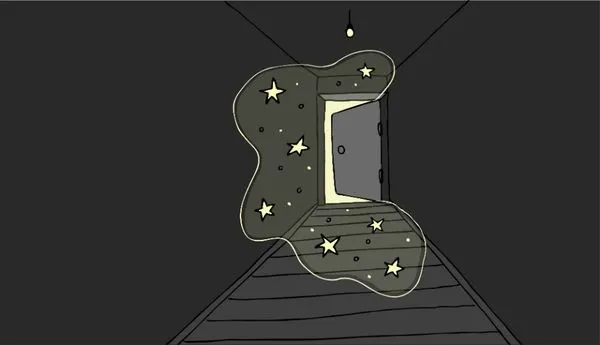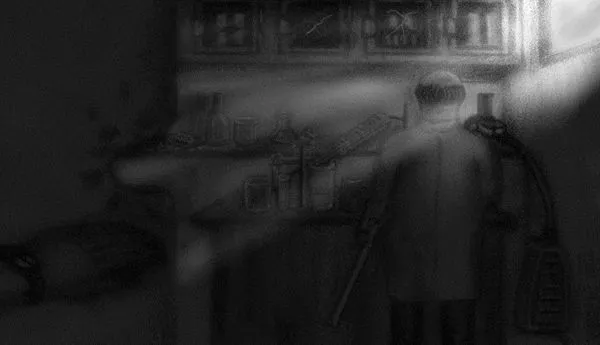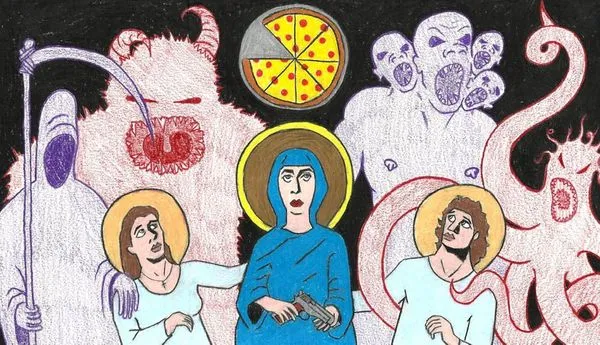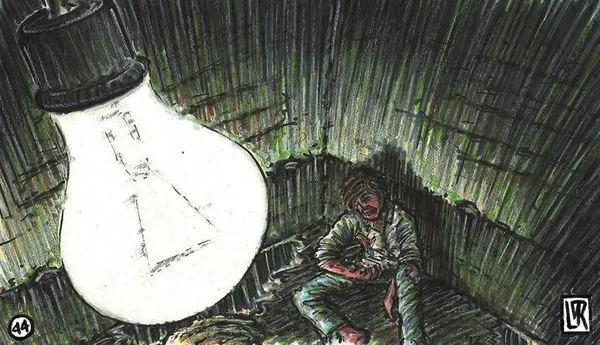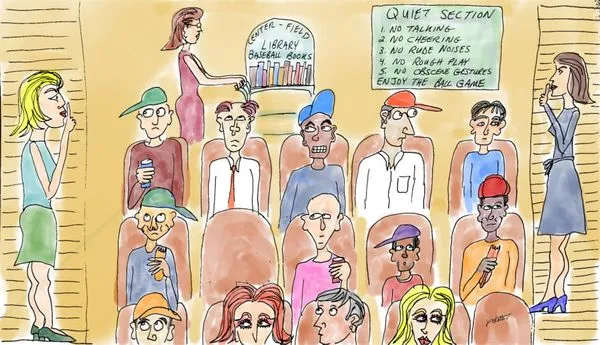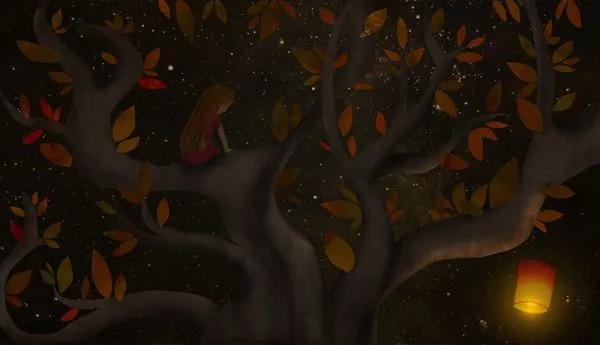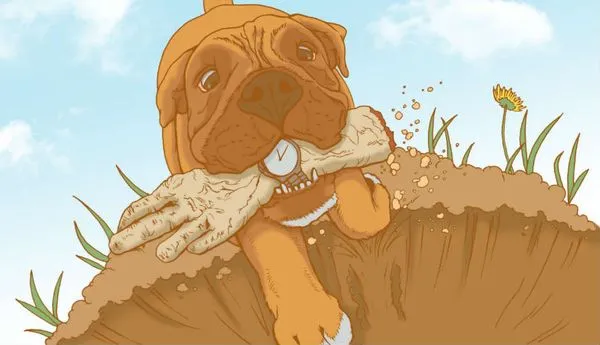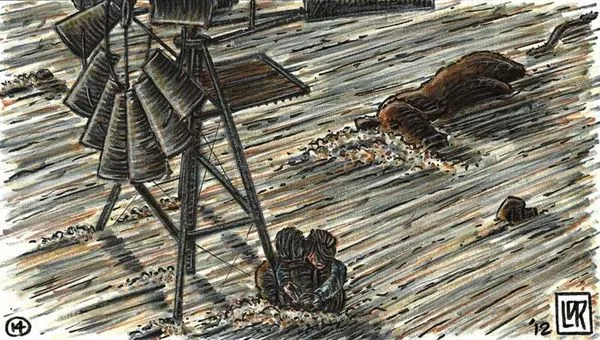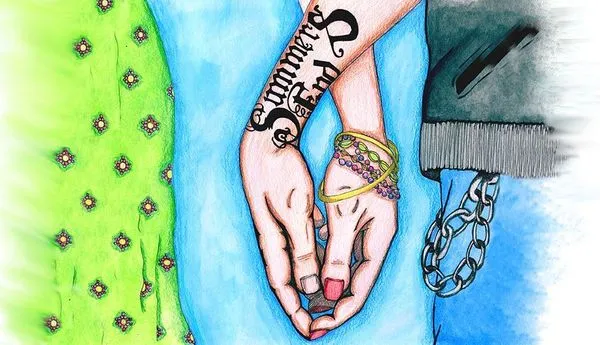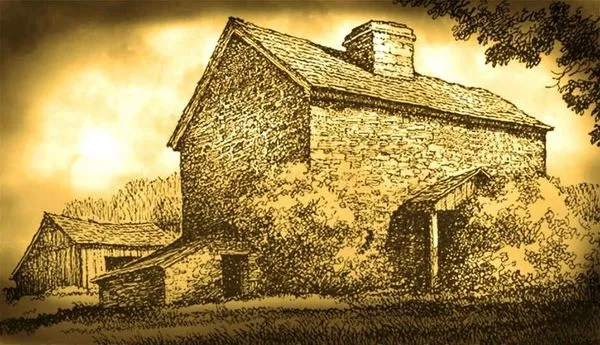The Aloo Tree
Published on 2013-03-18
I sat down under his shadow with great delight, and his fruit was sweet to my taste.
— Song of Solomon 2:3
The canopy of sky pressed down upon Hava and Adam, dwarfing their transgressions, making them human beneath distant suns. Adam said, “I’ve never done such a thing.” Such a thing. He pulled her body close, buried his face in her hair.
“I love how you smell,” he said. “Gul ab,” she wanted to say, rosewater, “it reminds me of my mother.”
She didn’t. It was hard to speak—to utter sound without sorrow. The summer grass — waist high in some places — swayed in the wind, and some great, tall stalks bent deeply, nearly breaking. She was a prideful woman emptied, finally, of her pride. She’d arrived to the party on her husband’s arm and was promptly deposited at the bar. “Have a drink,” he said and walked over to Adam’s wife. “Did you see the memo on the SCOTUS ruling?” She didn’t listen or pretend to listen. She poured herself one glass of wine after another. Drinking until the room was pleasant enough to bear until it wasn’t and the air drained out and what occurred to her was that this was her life, would be her life: tipsy against a wall. And then Adam was in the room. There was something familiar in his eyes — a reflection of her own resignation or perhaps he too, had had too much to drink. She’d met him before at similar parties. He was a school-teacher, played guitar with friends once a week at a dive bar no one went to, and took care of the kids while his wife, Savannah, built a prosperous law practice. He’d told Hava on two separate occasions about how once he’d opened a gig for someone she’d never heard of. It was his claim on something larger than himself. Hava nodded politely. When Adam spoke to her, he leaned in close. When he did that, she knew.
“I need a little fresh air,” Hava said to her husband who wasn’t listening. She walked across the room, felt Adam watching her. She was glad she’d worn a thin silk dress.
“I could use a little walk myself,” he said.
He smelled like too much good whiskey. He led her into the thick quivering grass. It ruined her dress. Each blade catching onto it as if to keep her from crossing some invisible threshold. The wind changed direction. Hava pulled her shawl tighter. He was taller than she was, and if she looked straight ahead all she could see was the delicate skin of his neck throbbing with his heartbeat. Alive. His hands were warm and kind at her waist. He’d had too much to drink. One moment he was pressed against her and the next moment he was looking back towards the party and it’s lights as if he didn’t know how he’d traveled so far into darkness and wet grass. She didn’t ask him, “why did you bring me here?” She knew. But, maybe, she didn’t know. She could feel the tremor of her own desire rising up from a dark place. He was trembling as well. Would he turn back and leave her in the field? Could he? If she said, “don’t leave me here,” he would misunderstand. He would think she was asking. It was a command. His eyes were silver blue, so clear they were like windows—only when she looked into them, she saw something of herself she recognized but couldn’t title: a kind of indecision and a terrible fear of the inevitable. The rustle of the leaves in the old trees around them mixed with the sound of far away music and people laughing. They were still until the stillness was not enough, and he began to name the things he wanted to do to her; their solitude in the field beneath the stars giving him a kind of intimate permission to do away with pretense, with small talk. To her, he sounded like any American; vulgar enough to say aloud words like “lick.” She liked it. She liked his voice too, even though he spoke too much, said too much. The men she knew were quiet; prided themselves on a kind of ascetic stoicism. Adam was different. Strange, exotic. “White man,” she wanted to say, “I’ve never been with a white man.” Voices from afar floated up into the night sky. Hava looked back towards the party, where she knew her husband was speaking about mundane injustices: traffic tickets, rising gas prices, a loveless marriage. Some guests were leaving. It was late.
“I want to make love to you,” he said. The wind stilled over the field. The stars moved imperceptibly slow and yet, Hava could feel the big world around her, spinning as she was standing still. She pulled away, startled by the sincerity in his voice. Love? She’d loved fiercely once. That love kneeled to a quotidian life: a mortgage, two children, a career man with a mistress. What she wanted in the field beneath the stars was to be alive with a different kind of man. To feel bright and ignited like the tiny suns blazing above. Love, she didn’t want. Still she couldn’t turn away from him. She wanted to believe that desire could be severed from affection. Affection, a kind of love. His hands traveled down, and further down, below the small of her back.
“You’re a plum.”
“Aloo,” she whispered.
He hummed the tune of a song she’d heard once, somewhere else.
I believe in everything, in everything.
She didn’t say, “even in things you’ve lost?” She undid the top buttons of his shirt and thought about the aloo tree she’d loved in Tehran. Hava in the courtyard, on the cusp of knowing but still unknown to herself. Her mind inseparable from her heart; unable to comprehend the chasm between knowledge and desire. She’d gazed into the canopy, wanting the fruit, wanting it so that it became like need, and she, a child, unable to imagine why she shouldn’t have the thing she wanted.
He whispered again, “I want to make love to you.” His lips brushed her cheek but stopped short of her lips. He hesitated. “I want to make love to you,” meant something else. Small electrical jolts traveled up and down her body.
It felt good.
In his arms she was a woman, nothing less or more. She pulled him down into the wet grass. He didn’t resist her taking off his shirt, unbuckling his belt, letting her mouth travel slowly down the length of his body; smooth and white in the field beneath the stars. She thought of aloo fruit in the summer, the tart skin giving way to the sweet flesh, the juice dripping down her chin. Tartness and sweetness, each in perfect proportions. When she remembered it days and weeks and months later, she’d have to stop to catch her breath in her teeth.
She kissed him where she’d seen his heartbeat flutter. A flurry of shooting stars streaked past, opening the sky with their white fire. She was reminded of the love she’d felt at 19, the love that had taken her across an ocean for a man she barely knew but loved so certainly, in whose hands she’d been opened over and over. And to be opened again for something less than love or what could never be love—stopped still her beating heart for a moment long enough to know she couldn’t endure another loss, even a small and foolish one with a kind and abiding man who smelled of too much good whiskey.
“I can’t do this.” She stood up.
Her name burst from his lips like heat lightening. She couldn’t. It was better to remember Adam among the summer grasses swaying in the evening wind with only that fatal, final moment to burden her and nothing more.
Adam would remember the trailing of her dress, weaving serpent like away from him—always away—through the grass, and later he wouldn’t know why the relief mingled with a great welling of regret.
She went home with her husband. When the babysitter was paid and gone, he said, “I love you,” which was his way of saying nothing. In his sleep, he came upon her and their mouths and hips and hands did the things they’d done for years; practiced and emptied of inner light. But her mind went to the courtyard of her aunt’s home that summer in Tehran where as a child she’d looked up into the canopy of an aloo tree. Each low hanging fruit so ripe and slick with juice it glimmered in the fading summer light. She wanted to taste it but her aunt had shooed her away, “boro joonam, they’ll make you sick.” But at night she’d gone back. She bit into the flesh, the guilt as sweet as the rot growing outwards from its pit.

